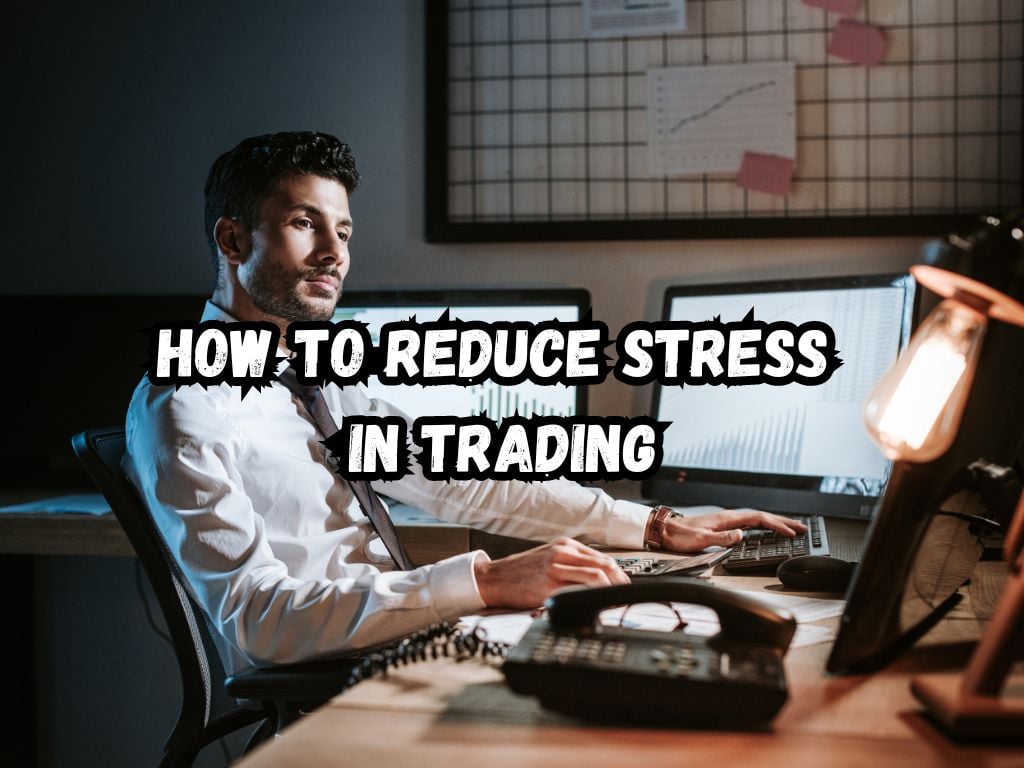Trading in financial markets is an endeavor that involves constant decision-making and monitoring of financial assets. While it can be lucrative, the inherent high-pressure environment can also be a major source of stress.
Learning to how to reduce stress in trading is crucial not just for personal well-being, but also for achieving long-term success in trading.
Understanding Trading Strategies
Stress in trading often stems from financial risks, emotional strain, and decision fatigue. Traders face daily market fluctuations and must make quick decisions, often involving substantial amounts of money.
Emotional reactions to gains and losses can exacerbate stress, potentially leading to hasty decisions driven by fear or greed. Recognizing these sources of stress is the first step toward managing them effectively.

How to Reduce Stress in Trading
Pre-Trade Preparation
Before engaging in trading, thorough market research and analysis are essential. This preparation helps in forming a clear action plan, reducing uncertainties that can cause stress.
Setting realistic goals is also critical. Traders should define what they aim to achieve in both short-term and long-term scenarios, aligning their strategies accordingly.
Psychological Strategies
Mindfulness and meditation offer significant benefits in managing stress. These practices help maintain a calm mind, crucial for making informed trading decisions.
Cognitive restructuring is another effective psychological strategy. This involves challenging and changing negative thought patterns that can cloud judgment or escalate stress.
Risk Management Techniques
Effective risk management is key to stress reduction. Use of diversified investment approaches and stop-loss orders can help control potential losses, making the trading process less stressful.
Maintaining a favorable risk-reward ratio is another aspect of risk management that ensures the potential benefits outweigh the risks involved.
Lifestyle Factors
Physical health impacts mental well-being. Regular physical activity, sufficient sleep, and a balanced diet can all help improve a trader’s psychological resilience.
Physical exercise releases endorphins, improving mood and reducing stress. Sleep is also crucial, as it affects cognitive functions and emotional processing.
A nutrient-rich diet supports overall brain health, helping to manage stress better.
Technology and Tools
Leveraging technology can also reduce stress. Automated trading systems can handle some of the trading operations, reducing the emotional stress associated with decision making.
Stress management apps can provide easy access to meditation and mindfulness exercises, helpful for maintaining mental health. Regular breaks, guided by apps or set as reminders, are important to prevent burnout.
Creating a Healthy Trading Environment
The physical environment can vastly influence a trader’s stress levels. An optimal workspace that promotes comfort and efficiency helps in maintaining focus and reducing strain during trading hours.
Regular breaks, such as those managed with the Pomodoro Technique, help maintain concentration while avoiding mental fatigue.
Scheduling regular review sessions for analysis of past trades can aid in refining strategies and preparing mentally for future sessions.

Handling Losses
Losses are inevitable in trading, but how they are handled can affect stress levels significantly. Accepting losses as part of the trading process and learning from them builds emotional resilience.
Reviewing what went wrong and adjusting strategies accordingly can turn losses into learning opportunities, reducing feelings of stress and helplessness.
Pro Tips
Traders should keep abreast of market news without becoming overwhelmed by information overload. Regular emotional health assessments can prevent stress from accruing unnoticed.
Engaging in non-trading related hobbies helps maintain a balanced lifestyle. Keeping a trading journal can offer insights into personal trading patterns that might need adjustment.
Frequently Asked Questions
What are the most effective stress reduction techniques specifically for day traders?
Techniques such as brief meditation or mindfulness exercises between trades can be especially effective for day traders, who face frequent, rapid decision-making periods.
How can I differentiate between normal and excessive trading stress?
Normal stress is to be expected and can even be motivating. If stress is causing physical symptoms or significantly impacting decision-making, it may be excessive.
Are there any particular calming techniques recommended before starting a trading session?
Deep breathing exercises and visualization techniques can help set a calm, focused mindset before trading begins.
How often should I take breaks from trading to reduce stress?
Break every hour for at least 5 to 10 minutes. Longer breaks of at least 30 minutes after every 3 hours of trading are also beneficial.
Is it advisable to trade with a friend or group to help manage stress?
Yes, trading with others can provide emotional support and allow for shared experiences and strategies, which can help in managing stress. By implementing these strategies, traders can manage stress effectively, making their trading journey less strenuous and more successful.
Conclusion
Managing stress in trading is crucial for both psychological well-being and professional success.
By preparing adequately, employing risk management techniques, optimizing the physical workspace, and maintaining a healthy lifestyle, traders can minimize stress.
Mental health should always be a priority, as a healthy mind is essential for making rational trading decisions.


 Tags:
Tags:










